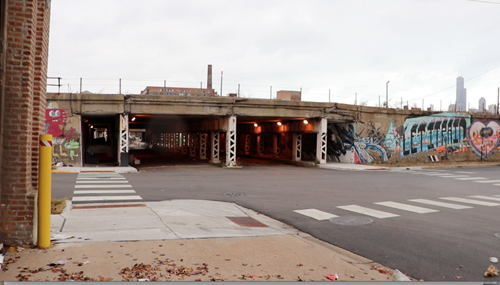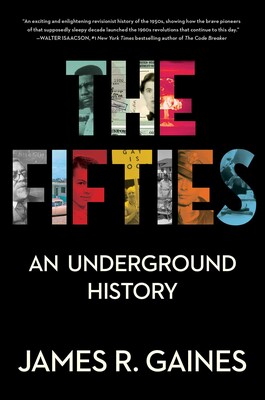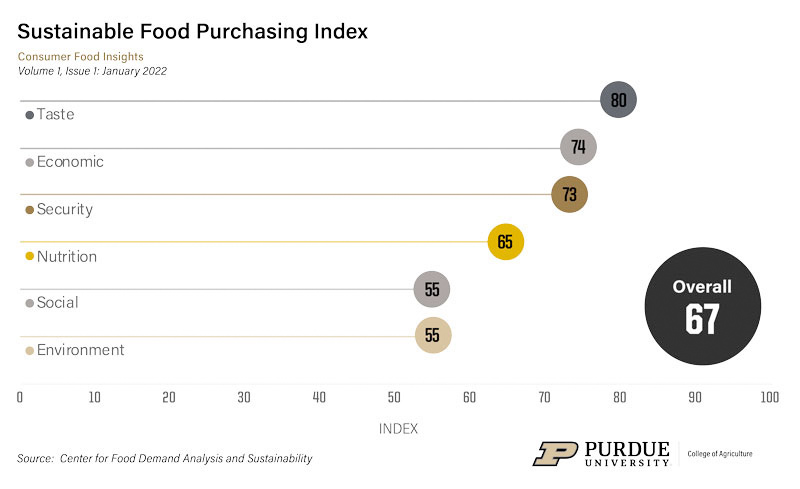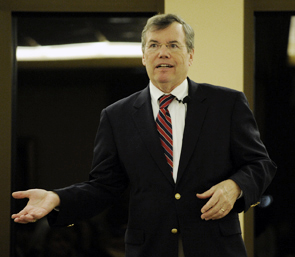 | | | In March, following the sudden and disturbing invasion of Ukraine by Russian forces, members of campus communities across the country are attempting to understand the causes of the crisis and the implications for the world. The through-lines between the invasion and climate change are impossible to ignore. Nations are considering how to secure the future of their energy production and advocates for renewable energy are making the case that solar and wind power can bolster national security. Divestment activists, too, are now pushing to sever ties with Russian entities, particularly in the energy sector. In this issue of the Rachel Carson Council Campus Dispatch, you’ll find stories about the climate connections of the Ukraine invasion and how activists are responding. You’ll uncover stories of new sustainability initiatives on campuses across the country, new developments and strategies in divestment, and how the growing success of campus divestment advocates has drawn attacks from the likes of right-wing oil billionaire Charles Koch. Our March issue also offers opportunities to connect further with the RCC. We are currently accepting applications for the Rachel Carson Council Fellowship Program and have announced two new full-time job openings ideal for starting an environmental career. Look for details in this issue, along with highlights from our current 2021-2022 RCC Fellows, the latest Bob Musil review of a surprising book about 1950s radical activists that includes Rachel Carson, resources you can use in or out of the classroom, and more. | | | | | | | | Divestment campaigns continue to build momentum on campuses across the country. Activists are calling on institutions to sever ties with Russian companies, particularly those focused on fossil fuels. Elsewhere, organizers at five major universities are employing a novel legal strategy to compel their universities to divest. | | | | Yale, Princeton, Stanford, MIT and Vanderbilt Students Take Legal Action to Try to Force Fossil Fuel Divestment For years, they tried to convince universities that investing in fossil fuels was immoral. Now they’re telling them it’s illegal. Students fighting climate change have been trying to pressure universities to divest from the fossil fuel industry for years: They have shouted slogans, marched, rallied, waved signs. They have signed petitions and passed resolutions and referendums. They have disrupted Zooms and football games and board meetings and administration buildings. They have covered themselves in oil. | | | | | | Climate Groups Press Banks, Asset Managers to Sever Russian Ties A coalition of more than 75 climate change-focused nonprofits want the biggest names in banking and fund management to “stop propping up Putin’s illegal war on Ukraine” by severing all financial ties with Russian energy companies. The organizations, which include Sierra Club and Rainforest Action Network, have requested 100 financial institutions — a group it’s calling the “Putin 100” — put an end to the financing, investing and insuring of companies in Russia's coal, oil and gas industries, and to divest from existing holdings. | | | | | | | | Colleges Cut Financial Ties to Russia Few institutions are heavily invested in Russian assets, but college officials say divestment is one symbolic step that institutions can take to protest Russia’s invasion of Ukraine. The Arizona Board of Regents announced Monday it would exit all investments in Russian assets, adding the three-university system to a small but growing list of institutions that have severed economic ties with Russia as the country continues its invasion of Ukraine. The board “condemns in the strongest possible terms Vladimir Putin’s illegal invasion of the sovereign nation of Ukraine and apparent targeting of civilian populations, with one million refugees already in its wake,” Lyndel Manson, chair of the board, said. | | | | | | The Massive Disconnect Between Big Oil's Words and Actions, in Data Big oil companies love to talk about a cleaner future — and how they’re going to make it happen. Over the last two years, Shell, BP, Chevron, and ExxonMobil have pledged to zero out their carbon emissions by 2050. Watching Exxon’s algae-heavy advertisements, you’d think the company is swapping oil barrels for biofuel farms. Shell’s website is sprinkled with pictures of solar panels and claims that it’s taking action to create “a more sustainable, renewable, energy-rich, lower carbon future.” | | | | | | Fossil Fuel Divestment Prompts Backlash College students have been some of Charles Koch’s fiercest opponents. The oil billionaires are sweating. And it’s college students who are turning up the heat. Texas recently passed a law to protect oil companies from divestment campaigns. It blacklists companies that have divested from fossil fuels because of what its sponsor, Sen. Brian Birdwell, R-Texas, has called the “burgeoning fossil fuel discrimination movement.” | | | | | |  | Hope is Not Passive: How Activism Keeps Optimism Alive There are so many reasons to despair, to think all is lost. But climate activists young and old remain optimistic as they find that action spurs hope, leading to more action in a virtuous cycle. Maya Hidalgo knows avoiding the worst impacts of a warming world requires completely revamping a way of life driven by consumer capitalism and built on systemic racism. She also knows that this almost insurmountable task will not be accomplished with the pollyannaish hope that someone else will figure it out. | | | | | | UNCW Event Examines History of Environmental Injustice There are no invisible barriers, no protective borders that stop contaminated water and air traveling from poorer, predominately Black communities to more affluent, largely white towns and neighborhoods. What happens in communities of color, which are disproportionately affected by polluters that discharge chemicals into waterways, spray them on the ground or emit them through smokestacks into the air, should sound the alarm for what’s to come for the larger region. | | | | | | Young Catholics Deliver Critique of US Church Leaders' Climate Silence Straight to the Pope Henry Glynn was blunt as he spoke directly to the pope. "Our experience is priests never discuss climate change," the Creighton University junior said during a virtual conversation that 130 university students and young Catholics held Thursday with Pope Francis as part of a listening session for the synod on synodality hosted by Loyola University Chicago. The issue of climate change, Glynn said, is "the issue that profoundly worries our generation." | | | | | | Business Schools Teaching Sustainability Want to Go Green To champion the environment, programs must make it a core focus, and tackle the climate impacts of their operations. Caroline James says if she’d been told a few years ago that she’d be an MBA candidate right now, “I would have said: ‘Absolutely not.’ ” Back in 2014, as an undergraduate studying political science and government, she was arrested in Washington, D.C., while protesting the Keystone XL oil pipeline. She was more focused on environmentalism than capitalism. | | | | | | Howard U to Engage Students with Five-Year Sustainability Plan Howard University recently announced that it will be partnering with VEIC and CustomerFirst Renewables to develop a five-year campus Sustainability Plan. The university and its partners will engage with students, faculty and staff to seek input in creating a robust, future-oriented plan, according to a news release. The new Sustainability Plan will create sustainability goals that align with the pre-existing Howard Forward strategic plan. | | | | | | Indiana University Pairs Cities, Grad Students to Solve Climate Change What can Hoosier cities do to lessen the effects of climate change? How can universities better prepare college students for real-life positions in sustainability and environmental departments across communities and organizations? An expanded project at Indiana University is providing answers to both questions. It connects graduate students with officials in Indiana communities, doing everything from collecting data on greenhouse gas emissions to developing a comprehensive climate action plan. | | | | | | Clarkson University Libraries First Academic Library to Complete Sustainable Libraries Certification Program Clarkson University Libraries just became the first Academic Library to complete the Sustainable Libriraries’ Initiative rigorous certification program. The Academic Certification Program encourages collaboration with other campus sustainability efforts and reaches beyond the university to establish the university library as a resource and leader in the resilience of the broader community. | | | | | | | | Living Without Nature: Interviews from Chicago’s South and West Sides (First in a series)  It wasn’t until college that I learned about Nature Deficit Disorder. It’s not a medical condition, but more a syndrome from the withdrawal of nature. It suggests that there is a correlation between a lack of greenery and obesity, attention difficulties, and emotional and physical illnesses. This is especially prevalent in lower-income communities, which typically do not have access to the same forms of natural resources like parks or woods as wealthier ones. Take where I grew up. It wasn’t until college that I learned about Nature Deficit Disorder. It’s not a medical condition, but more a syndrome from the withdrawal of nature. It suggests that there is a correlation between a lack of greenery and obesity, attention difficulties, and emotional and physical illnesses. This is especially prevalent in lower-income communities, which typically do not have access to the same forms of natural resources like parks or woods as wealthier ones. Take where I grew up.
The south and west sides are predominantly black and brown areas (African-American and Mexican-American) of Chicago. I grew up between these areas where, instead of green space, there are abandoned buildings and lots, riddled with weeds and trash. It’s not the type of place to go and contemplate nature. Even if there were some natural area, say a park, it is not often utilized. Growing up, I was lucky to live near a playground, but my mother never let me visit it because it was known that gang members congregated there. Such restrictions like this were common where I grew up in Little Village; sometimes, I wasn’t allowed at certain ends of the block because of the danger. It wasn’t as if my parents could simply take us to a safer area either; they both worked 12-hour days, coming home tired with little time or money to spare for family trips. So, how is anyone in this environment meant to get some time in green spaces? And is there even awareness that a lack of natural areas is a potential health hazard? Read more | | | | | | Climate Change is Not a Problem  My family cares about the climate problem. We buy local vegetables and try to keep lights off whenever they are not needed. Recently, I was speaking with someone about climate change and expressing my frustrations over inaction, and this was their first response. I was left a bit unsettled to learn that they believed by doing small actions like these, our environmental issues would be solved. If only more people recycled. If only more people had solar. My family cares about the climate problem. We buy local vegetables and try to keep lights off whenever they are not needed. Recently, I was speaking with someone about climate change and expressing my frustrations over inaction, and this was their first response. I was left a bit unsettled to learn that they believed by doing small actions like these, our environmental issues would be solved. If only more people recycled. If only more people had solar.
Climate change is not a climate problem. To be more accurate, one could say climate change is not “the problem”, but rather “a symptom” of a much larger issue that must be addressed if we are to change the ultimate course of the disease. There is no doubt — addressing the root cause will require changes in our ways of living, but at a level switching to solar or eating local will not achieve. While many of us probably believe that climate change and mitigation are more nuanced, my friend’s views are still widely held. For instance, more people favor individual, consumer-based environmental action over actions that require larger social change. This is no surprise — we have a considerable issue in the way we frame, or talk about, climate change and mitigation. When I search “climate change solutions” on my browser, the first result is the United Nations Act Now ten “impactful” actions. The top three include reducing energy consumption in the home, walking and biking, and eating more vegetables. The only one that remotely hinted to collective action was “Speak up”, which came last, right behind “Choose Eco-friendly Products”. Read more | |  | | | Where Does the Power of Fossil Fuels Come From?  Although the United Nations Climate Change Conference of 2021 (COP 26) ended in November 2021, it is still critical to address the troubling demonstration of power that the fossil fuel industry has in dictating the future of our species on this planet both at international negotiations and at home. Although the United Nations Climate Change Conference of 2021 (COP 26) ended in November 2021, it is still critical to address the troubling demonstration of power that the fossil fuel industry has in dictating the future of our species on this planet both at international negotiations and at home.
At COP 26, there were 503 lobbyists representing around 100 oil, gas, and coal companies, including Shell and BP – a delegation even larger than any country. Even more disturbing is that fossil fuel delegates outnumbered the combined representatives of the eight countries and territories most affected by the climate crisis (Myanmar, Haiti, the Philippines, the Bahamas, Bangladesh, Puerto Rico, and Pakistan). At COP26, participating nations agreed to the “phase-down” fossil fuel usage and subsidies, but even that conclusion resulted in prolonged debate. While this agreement may be a good first step, many analysts argue that COP26 did not go far enough. Given the overwhelming number of fossil fuel representatives roaming the corridors, it should come as no surprise that it would be awfully difficult to reach a more effective outcome for climate justice. It is easy to be outraged at the huge representation and power the fossil fuel industry has at treaty negotiations, but we need to acknowledge its influence close to home. Even my own campus, the University of North Carolina – Chapel Hill, supports the power of the fossil fuel industry through its endowment investments. Read more  RCC Fellow Gabriela Duncan is a junior at the University of North Carolina at Chapel Hill, majoring in Interdisciplinary Studies: Environmental Justice with a minor in Geography. RCC Fellow Gabriela Duncan is a junior at the University of North Carolina at Chapel Hill, majoring in Interdisciplinary Studies: Environmental Justice with a minor in Geography. | | | | | | | | | | Was the Fifties All “I Love Lucy”?  James R. Gaines, The Fifties: An Underground History (New York: Simon & Schuster, 2022) James R. Gaines, The Fifties: An Underground History (New York: Simon & Schuster, 2022)
The Fifties is a riveting, wonderfully written book about brave and bold progressive movements and leaders at the height of the Cold War and McCarthyism. It can and should change your view of recent American history, how social change happens, how culture shifts. It is a cliché that the great reform movements of our time began in the Sixties, often with dramatic moments captured on camera – dogs and fire hoses in Birmingham, John Lewis beaten on the Pettus Bridge. For the environment, Rachel Carson testifying to Congress, the huge demonstrations of Earth Day.  The 1950s are seen as an era of conformity and compliance, with little to signal our forthcoming tumultuous social movements. James Gaines’ book properly puts such “Father Knows Best” and “Ozzie and Harriet” notions quickly to bed. The Fifties opens with its most powerful and harrowing chapter, “Gay Rights.” It describes just how awful things were for homosexuals while I was watching “I Love Lucy” and how brave, almost reckless, the founder of the gay rights Mattachine Society, Harry Hay, was in 1950. His call to create a gay rights group that became the Mattachine Society went forth as the Korean War broke out and Joe McCarthy launched what turned out to be a crusade against homosexuals, as well as supposed communists. When State Department officials were grilled before the Senate subcommittee formed following McCarthy’s “revelations,” it was determined that 90 of 91 persons discharged from State as security risks were homosexuals. The New York Times put it less subtly: “PERVERTS CALLED GOVERNMENT PERIL: GOP CHIEF SAYS THEY ARE AS DANGEROUS AS REDS.” Read more The 1950s are seen as an era of conformity and compliance, with little to signal our forthcoming tumultuous social movements. James Gaines’ book properly puts such “Father Knows Best” and “Ozzie and Harriet” notions quickly to bed. The Fifties opens with its most powerful and harrowing chapter, “Gay Rights.” It describes just how awful things were for homosexuals while I was watching “I Love Lucy” and how brave, almost reckless, the founder of the gay rights Mattachine Society, Harry Hay, was in 1950. His call to create a gay rights group that became the Mattachine Society went forth as the Korean War broke out and Joe McCarthy launched what turned out to be a crusade against homosexuals, as well as supposed communists. When State Department officials were grilled before the Senate subcommittee formed following McCarthy’s “revelations,” it was determined that 90 of 91 persons discharged from State as security risks were homosexuals. The New York Times put it less subtly: “PERVERTS CALLED GOVERNMENT PERIL: GOP CHIEF SAYS THEY ARE AS DANGEROUS AS REDS.” Read more | | | | | | | | Advancing Sustainable Solutions Learn how to make lives better and more sustainable—and have some fun along the way! Explore our monthly online U-M-student-developed games, which range in format and difficulty. At the beginning of each month from now until Earth Day in April 2022, we’ll release new games that test your skills and knowledge of sustainability issues. Read more | | | | | | New Report Provides Insight on
Consumer Food Spending, Satisfaction, Sustainability  The Consumer Food Insights Report, a new monthly report identifying trends and changes in consumer food purchases and preferences, has been released. The Consumer Food Insights Report, a new monthly report identifying trends and changes in consumer food purchases and preferences, has been released.
The survey-based report out of Purdue University’s Center for Food Demand Analysis and Sustainability assesses food security and spending, consumer satisfaction and values, support of agricultural and food policies and trust in information sources.
Purdue experts conducted and evaluated the first survey, which included 1,200 consumers across the U.S., in January. Key results include: - 25% of respondents were unable to find a specific food product at the grocery store.
- 32% of respondents are waiting for their next paycheck to buy groceries.
- 16% of respondents face food insecurity.
- 51% of respondents blame COVID-related shutdowns for the rise in meat prices.
- A Sustainable Food Purchasing (SFP) Index of 67/100.
“We are taking the pulse of consumers to help guide farmers and retailers along the food supply chain as we all adapt to changing circumstances,” said Jayson Lusk, the head and Distinguished Professor of Agricultural Economics at Purdue, who leads the center. “Consumers significantly influence the direction of food and agricultural systems, and we need a timely way to track trends in what people are buying and eating, and how this is affected by events like inflation, climate change and COVID-19.” Read more | | | |  |  | | | The Rachel Carson Council is pleased to announce that the Rachel Carson Council Fellowship Program is now accepting applications for the academic year 2022 - 2023. The RCC Fellowship Program will select 25 environmental leaders from colleges and universities across the nation. To apply to the program, students propose their own projects that are focused on sustainability and environmental justice to be carried out on their campuses and in their communities. Former fellows have run projects ranging from divestment campaigns to podcasts on environmental justice issues and campaigns for renewable energy infrastructure on their campuses. Learn more about our current RCC Fellows here. Fellowships are for the academic year 2022-2023 and provide $2,000 for current undergraduates (or master’s level graduate students) to carry out climate and environmental justice projects and campaigns for the RCC from their respective campuses. In July, those selected as RCC Fellows will travel to Washington DC to be in residence for the five-day RCC American Environmental Leadership Institute (AELI) at the Rockwood Manor Retreat Center adjacent to the C&O Canal National Park. Fellows will further develop their writing, organizing, and advocacy skills and begin plans for their projects and campaigns for the coming year. Faculty for the AELI will include RCC staff and some members of the RCC National Advisory Council [LINK] Throughout the academic year, RCC Fellows will receive mentorship from RCC staff, access to the Advisory Council, and the opportunity to publish. Find the application for the Fellowship program here. Application Deadline is April 1st | | | | | |  RCC is Hiring! RCC is Hiring!
The Rachel Carson Council is hiring two new Assistant Directors
(Climate Justice and Communications). An excellent career jump start for about to and recent grads and work/mentoring with long-time environment leader, Bob Musil, in a growing climate justice organization! Please help us find emerging environmental leaders.
Please find more information and the application here | | | | | | | | | | RCC Releases New Report Rachel Carson understood that money talks. She would have welcomed the successes of today’s fossil fuel divestment campaigns and their careful dissection of the evasions and prevarications of the oil, gas, and coal industries and the disastrous effect of their products on the planet and on human health. And she would have been heartened by the leading role of young Americans on college campuses in calling these companies to account, in demanding that colleges and universities live up to their professed ideals by eliminating their investments in fossil fuel companies and refusing to accept contributions from them. It is why the Rachel Carson Council, the organization that Carson wanted her friends to initiate to carry on after her death, has published this comprehensive report, Money Talks: Strategy, Success, and Action on Divesting and Reinvesting Funds for Fossil Fuels. Money Talks is a comprehensive report on the state of the fossil fuel divestment movement in the United States. It is designed to educate you on the power of divestment, share stories from successful campaigns, and give you the tools to make divestment happen on your campus. Joining with RCC in uplifting the voices of organizers across the country in stating clearly: it is time to end our relationship with the fossil fuel industry. | | | | | | Plan Your 2022-2023 Campus Events with RCC now!  For the first time in nearly two years, RCC President & CEO, Dr. Robert K. Musil, a national leader in climate change, environmental justice and health is again available to book for in-person campus speaking events! Musil has been called “informative, challenging and inspirational all at once.” He is “motivational” with “intellectual depth” and “extraordinary impact.” For the first time in nearly two years, RCC President & CEO, Dr. Robert K. Musil, a national leader in climate change, environmental justice and health is again available to book for in-person campus speaking events! Musil has been called “informative, challenging and inspirational all at once.” He is “motivational” with “intellectual depth” and “extraordinary impact.”
Dr. Musil is available for campus lectures and visits involving classes, meetings with campus and community groups, consultations with faculty and administrators, or for Earth Day, Commencement, and other special events. Stays range from one to three days. Reduced fees are in place for 2022-2023 and can be designed to meet reduced budgets. To arrange a campus visit with Dr. Musil, contact the RCC President’s Office at office@rachelcarsoncouncil.org or call
301-214-2400. Dr. Musil has also been available to CIC members (Council of Independent Colleges) as a CIC Visiting Fellow (formerly Woodrow Wilson) for stays of a week through the CIC Visiting Fellows Program. Unfortunately, the CIC Program has been put on hold and is being reevaluated. Contact CIC to find out when and if CIC Visiting Fellows will again be available.  The RCC also offers talks, classes, and workshops on student engagement, activism, sustainability, The RCC also offers talks, classes, and workshops on student engagement, activism, sustainability,
and the RCC Fellowship program with Associate Director Mackay Pierce.
To arrange a visit, contact our Associate Director Mackay Pierce at: mackay@rachelcarsoncouncil.org | | | | | |  The Rachel Carson Council Depends on Tax-deductible Gifts From Concerned Individuals Like You. Please Help If You can. The Rachel Carson Council Depends on Tax-deductible Gifts From Concerned Individuals Like You. Please Help If You can. | | | |  Sign Up Here to Receive the RCC E-News and Other RCC Newsletters, Information and Alerts. Sign Up Here to Receive the RCC E-News and Other RCC Newsletters, Information and Alerts. | | | | | | | | | | | |